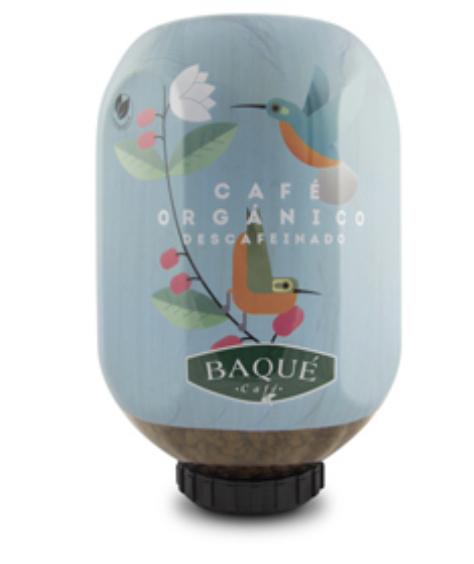Cafés Baqué
Decaffeinated Organic
 Iurreta
Iurreta
4.50(1)
A decaffeinated coffee from the Minas Gerais region of Brazil that offers a sweet and balanced cup of coffee, with a light bitter finish and pleasant body. Perfect when combined with milk.
Tasting notes:
Aromas Cacao and light notes of unsalted butter.
Body Medium density and clean texture.
Flavour Moderate acidity and medium bitter finish with notes of cacao and hazelnut.
Aftertaste Saliva and persistent in the mouth.
Reviews(1)
4.50(1)
Latest Reviews and Tasting Notes
-
Theo Chan, Managing Editor
1417 roasts rated, avg score of 4.29
4.50 - Average
4.50 - Aroma
4.50 - Finish
4.50 - Flavor
4.50 - Acidity
4.50 - Balance
Quirky decaf. A little bit tart and a little bit salty/savory (tiny hint) with a big crema and tons of evolving characteristics. Acidity after nuttiness, maybe macadamia? Interesting long linger. Didnt like it at first but it really grew on me. A unique and pleasant way to finish a nice meal. Never had a decaf like that.Cupping Method:After meal decaf at a pizza restaurant by Michelin star chef Javi Estevez
More Details
Best Rated Roasts of Cafés Baqué
Cafés Baqué is a coffee roaster from Iurreta, Spain. We have 3 cataloged roasts with 5 total reviews with a score of 4.33.
| Name | Roast Level | Bean Source |
|---|---|---|
|
4.50(2) |
Medium Dark | International Blend |
|
4.00(2) |
- | - |
Similar Roasts
| Name | Roaster | Roast Level | Bean Source |
|---|---|---|---|
|
4.80(5) |
49th Parallel Coffee Roasters | Light | Guatemala |
|
4.67(6) |
Caffé Vita | Medium | - |
|
4.88(4) |
Phil & Sebastian Coffee Roasters | Medium | Honduras |
| Nomad Coffee | Light Medium | Rwanda | |
| Nomad Coffee | Light Medium | Guatemala | |
| Rogue Wave Coffee | Medium | El Salvador | |
|
4.75(4) |
Bell Lane Coffee | Medium | Americas Blend |
|
4.60(5) |
49th Parallel Coffee Roasters | Light | Burundi |
|
4.60(5) |
Greater Goods Roasting | - | International Blend |
|
4.83(3) |
Counter Culture | Medium | International Blend |


